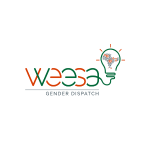

Women’s Economic Empowerment in South Asia (Hosted by SAR GIL)
Tags
- Gender-based Violence (17)
- Measurement (10)
- Leadership (18)
- Afghanistan (3)
- Social Norms (8)
- Infographics (9)
- Migration (14)
- Transportation (11)
- Green Transition (7)
- Digital Technology & Innovation (1)
- Toolkits (12)
- Pakistan (17)
- Energy (10)
- Jobs (43)
- Self-help Groups (12)
- Infrastructure (7)
- Agriculture (12)
- Social Protection (12)
- Digital Inclusion (17)
- Nepal (8)
- Private Sector (14)
- Care Economy (10)
- Agency and Self-efficacy (4)
- Bhutan (1)
- Women Entrepreneurship (1)
- Sri Lanka (5)
- Blogs & Articles (19)
- Podcast (22)
- Reports (29)
- India (24)
- Gender Finance (1)
- Assets and Resources (14)
- Bangladesh (20)
- Maldives (1)
- Climate Change (32)
- Entrepreneurship (33)
- Financial Inclusion (24)
- Policies and Legislation (14)
- Male Engagement (7)
- Gender Budgeting (7)
- Education and Skills (22)

Documents
Exploring Transport Mobility Issues and Adaptive Behavior of Women in a Developing Country (2024)
This study explores the mobility issues women in Dhaka, Bangladesh, across all income levels. Women across all income groups reported feeling unsafe while walking public transport at night, harassment in
Kistpay - Empowering Women Through Technology
In the digital age, access to technology and financial services has transformed from a luxury to a necessity. For millions of women, particularly those in underserved communities, this access remains
Applying a Gender Lens to Digital Remittances (2022)
Research by the UNCDF reveals clear patterns in how migrant women and women recipients access, use, and benefit from remittances. Most women who use digital channels for remittances have at
Four Reasons Why We Need Gender Mainstreaming in Migration Data (2022)
Gender-inclusive data can strengthen migration policy, reduce risks and vulnerabilities for all migrants, and contribute to the SDG’s 2030 Agenda of “leaving no one behind.” This blog outlines key reasons
How Do Digital Remittances Contribute to Women’s Financial Health? (2022)
This blog uses survey data from the United Nations Capital Development Fund (UNCDF) to explore the connection between digital remittances and women’s financial health and well-being. It highlights how digital
Information, Intermediaries, and International Migration (2022)
Access to better information can have a significant impact on women’s migration choices and outcomes. This working paper analyzes how information frictions in global labor markets influence the decisions and
Bridging the Digital Divide: Gender Insights on Remittance Access, Usage, and Financial Health (2024)
This report explores migrant and family experiences with international remittance services, focusing on digital channels and their impact on underserved populations across Africa and Asia. It finds that women face
Gender Differences in the Migration Process: A Narrative Literature Review (2024)
Migration is a highly gendered process. This article summarizes key findings from a literature review of quantitative migration research, revealing substantial differences between migrant women and men in the preparatory,
Gendered Dynamics of International Labor Migration: Migrant Women Working in Pakistan (2024)
This study explores the complex experiences of migrant women in Islamabad, based on interviews with 22 women from various countries, including the Philippines, Afghanistan, Canada, Uganda, Germany, and Algeria. Their
Women's Empowerment, Extended Families and Male Migration in Nepal: Insights from Mixed Methods Analysis (2022)
This paper analyzes variations in women’s empowerment based on their husband’s migration status and factors such as caste, ethnicity, and household composition. It finds that wives in nuclear households with